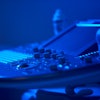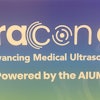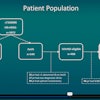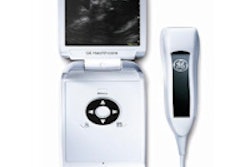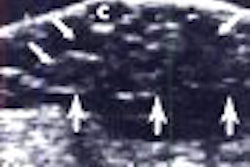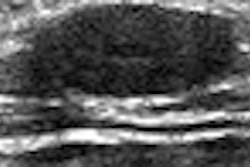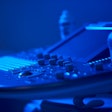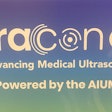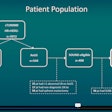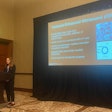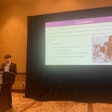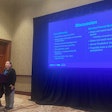A hand-carried ultrasound (HCU) system can reduce the need for a standard echocardiography (SE) system in an outpatient cardiology clinic, according to research published in the April issue of Heart.
"The use of a simple HCU device in an outpatient cardiology clinic allows bedside diagnosis in one-third of the patients referred for echocardiography, resulting in cost and time savings on SE examination and a second cardiology consultation," wrote a research team from the Policlinico Luigi Di Liegro in Rome.
To assess the value of an HCU unit in an outpatient cardiology clinic, the Italian researchers prospectively studied 222 consecutive patients referred to their outpatient cardiology clinic between September 15 and December 15, 2004 (Heart, April 2007, Vol. 93:4, pp. 470-475).
Eight cardiologists trained in performing and interpreting echocardiograms took the patients' clinical histories, performed the echocardiography and physical exams, and, if appropriate, requested other diagnostic tests for further information. When SE was specifically indicated, an HCU exam was immediately performed using an OptiGo scanner (Philips Medical Systems, Andover, MA).
Based on the HCU results, the cardiologist reassessed the clinical situation to determine whether to confirm or cancel the SE request. An SE exan was then independently performed for comparison by an echocardiographer using a Sonos 5500 scanner (Philips Medical Systems) and examined by a cardiologist blinded to the HCU results.
In 112 of the 222 (50%) patients, SE was not performed because the cardiologist considered the available clinical information sufficiently accurate (32/112, 39%), or because the patient had recently received an SE exam (80/112, 71%), according to the authors.
In other findings, the researchers reported that satisfactory information was obtained using the HCU device for 40 of 108 (37%) clinical questions. Of these, 38% were questions for left ventricular (LV) dimensions and function, 35% were for cardiac murmurs and valves, and 29% were for the right ventricle.
In 74 patients, the need for SE was confirmed, including 68 patients with an inconclusive HCU exam and six patients in whom the HCU exam answered the referring questions but revealed significant findings that required subsequent assessment with SE, according to the researchers. The HCU exam allowed for cancellation of SE requests in 34 of the 108 (31%) cases.
In 71 cases, both an HCU exam and SE were performed; there was 73% agreement between the two devices. SE found 29 major abnormalities in 21 patients, while the HCU exam missed 10 major abnormalities in nine patients (nine LV hypertrophies and one mild pericardial effusion located posteriorly to the right atrium).
For two of the nine patients, the echocardiogram was considered abnormal by both the SE and HCU exams, the researchers stated. However, they found that the HCU exam missed LV hypertrophy among the detected abnormalities and the SE exam diagnosed eight patients with pulmonary hypertension.
The HCU exam yielded a false-positive diagnosis in 12 patients, 10 of whom were considered to have mild LV hypertrophy. Two of the patients showed right ventricular dilatation, according to the authors.
In evaluating cost-effectiveness, the ability to cancel SE exams would have provided cost savings of 1,872 euros ($2,535 U.S.) over the study period. The researchers also determined that introducing the HCU exam in the physical exam session obviated the need for a second consultation in the same 34 patients in which SE was cancelled, producing an additional 442 euros ($598 U.S.) of savings. As a result, the HCU exam would have provided total cost savings of 2,314 euros ($3133 U.S.) over the study period.
The study's data confirm that HCU devices may be very useful in reducing departmental costs and time to diagnosis, the authors wrote.
"The proportion of clinical questions answered by HCU is similar for the assessment of LV function, cardiac valves, and right ventricle," the authors concluded. "Most inconclusive HCU examinations are related to the limited Doppler capability of the device."
By Erik L. Ridley
AuntMinnie.com staff writer
April 19, 2007
Related Reading
Handheld US market on the rise, February 7, 2007
Hand-carried ultrasound enhances bedside cardiovascular examination, September 29, 2004
Affordable equipment accelerates ultrasound proliferation, January 26, 2004
Copyright © 2007 AuntMinnie.com
